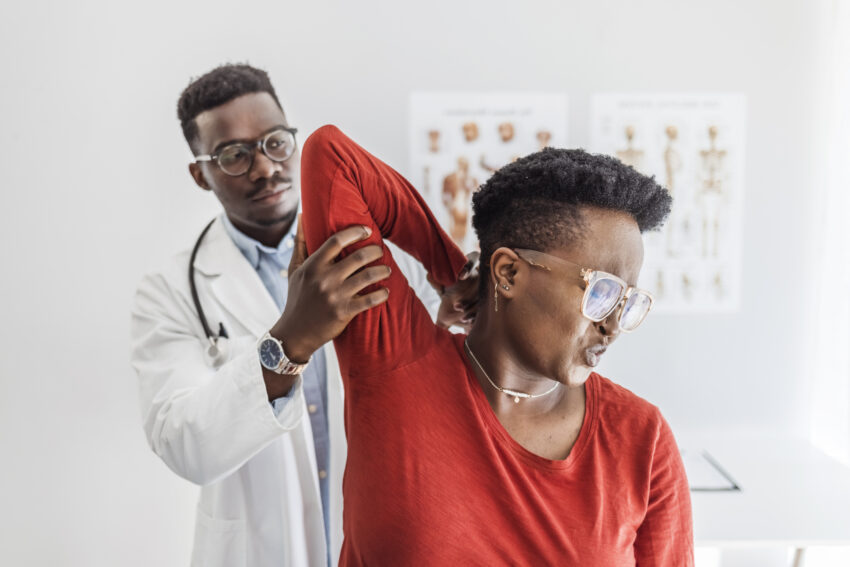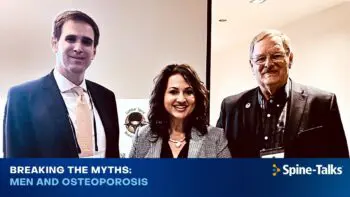Introduction to Bone Health
Bone health is a critical aspect of overall health, particularly when considering the role of the spine in keeping us mobile and upright.
During the National Spine Health Foundation’s Spine-Talks event, held at the North American Spine Society meeting in Los Angeles, Dr. Rita Roy underscored the importance of bone health. The discussion, moderated by Dr. Tom Schuler, delved into why bone health is vital, particularly for those over 50. Dr. John Dimar and Dr. Brandon Carlson, esteemed spine surgeons, joined the conversation to shed light on this crucial topic.
Understanding Bone Health and Osteoporosis
Bone health encompasses the strength and metabolic function of our skeleton. As Dr. Dimar explained, bones constantly remodel, turning over and evolving as we age. This dynamic process is why maintaining good bone health is crucial, especially as we grow older.
Osteoporosis is a condition characterized by weakened bones that are prone to fracturing. It is often diagnosed through decreased bone mass and quality. Dr. Carlson highlighted that osteoporosis can affect anyone, but it becomes more prevalent after the age of 50.
Factors Contributing to Osteoporosis
Numerous factors can lead to osteoporosis, including poor nutrition, lack of physical activity, smoking, and excessive alcohol consumption. Dr. Carlson emphasized the impact of these lifestyle choices on bone metabolism.
Additionally, certain medications and medical conditions, such as rheumatoid arthritis and chronic steroid use, can also weaken bones. Understanding these risks and addressing them early on is vital for maintaining strong bones throughout life.
Preventing Bone Loss and Promoting Bone Health
Preventing osteoporosis involves a multifaceted approach that includes a healthy diet rich in calcium and vitamin D, weight-bearing exercises, and lifestyle modifications.
Dr. Dimar pointed out that calcium absorption is essential for bone health, and vitamin D plays a crucial role in this process. He recommended regular weight-bearing activities, such as walking and jogging, to stimulate bone formation and maintain bone density. Avoiding smoking and limiting alcohol intake are also critical steps in preserving bone health.
Modern Treatments for Osteoporosis
Advancements in pharmacology have significantly improved the management of osteoporosis. Dr. Carlson discussed various medications that can either slow bone loss or stimulate bone growth.
Drugs like bisphosphonates help reduce bone resorption, while newer medications, such as teriparatide and romosozumab, promote bone formation. These treatments have revolutionized the approach to osteoporosis, offering effective options for building stronger bones and reducing fracture risk.
The Role of Spine Surgeons in Managing Osteoporosis
Spine surgeons play a crucial role in identifying and managing osteoporosis, especially in patients requiring spinal surgery.
Dr. Schuler and Dr. Dimar emphasized the importance of pre-operative bone health assessment to ensure successful surgical outcomes. Weak bones can compromise the stability of surgical implants, leading to complications.
By optimizing bone health before surgery, spine specialists can improve patient outcomes and reduce the likelihood of post-operative issues.
Empowering Patients and Moving Forward
Educating patients about their bone health is paramount. Patients are encouraged to engage actively with their healthcare providers, asking for bone density tests like DXA scans, and discussing their bone health openly. Early intervention and proactive management can prevent serious complications later in life. As Dr. Roy concluded, maintaining a healthy spine and strong bones is essential for staying mobile and living life to its fullest. The collaboration of healthcare experts and informed patients can pave the way for better bone health and overall well-being.
By understanding and addressing bone health proactively, individuals can significantly enhance their quality of life, ensuring that their skeleton remains strong and supportive throughout their lives.



